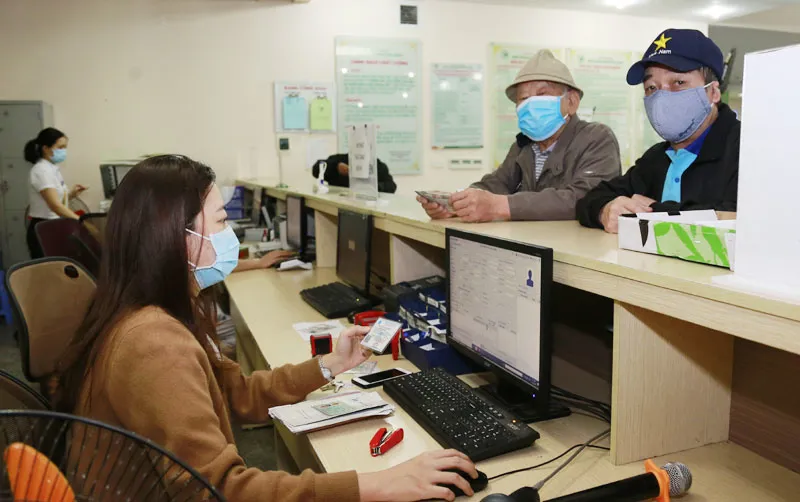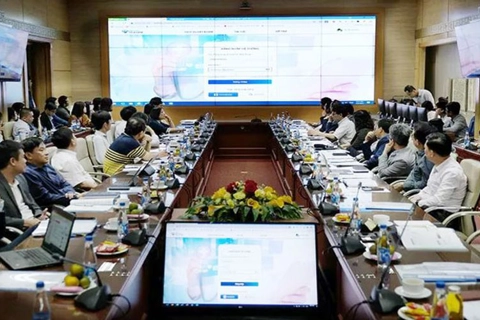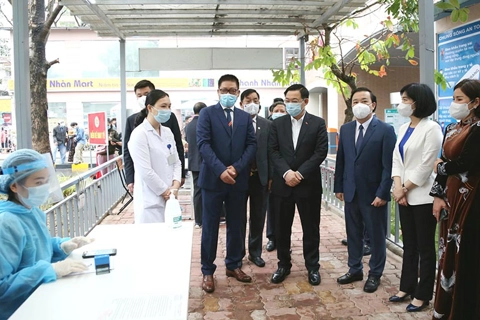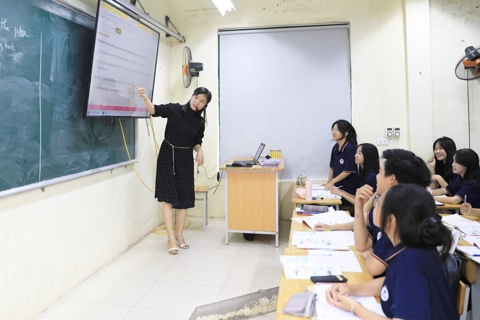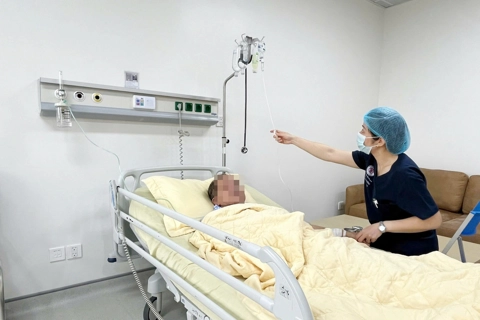Nearly five million Hanoians to use ID cards for medical check-ups
Thanks to the sharing of data between social security and the police, residents can use identification cards for medical examinations.
With health insurance data stored on citizen identification (ID) cards, some 4.8 million citizens in possession of the health cards in Hanoi at the end of December can use the IDs to access medical services.
According to Hanoi Social Security Director Phan Van Men, the measure has benefited 271,000 people.
"Currently, the city has 590 medical facilities that allow the use of ID for medical examination and treatment. At those facilities, residents can also use the national electronic ID application (VNEID) for medical examination and treatment," Men said.
A staff checks patients’ health insurance cards at Duc Giang General Hospital in Hanoi’s Long Bien District. Photo: Thanh Hai/ The Hanoi Times |
Referring to the management of insurance funds for payment of medical services, Men added that Hanoi Social Security had shared data with the Department of Health and medical examination and treatment facilities in bidding for the purchase of medicines.
According to the director, Hanoi social insurance will strengthen the supervision of the list of drugs, medical supplies, and medical practice conditions of doctors, among others.
According to Hanoi Social Security, health insurance enrollment has increased rapidly in the city. As of December 26, nearly 8 million residents had enrolled in health insurance, about 250,000 people more compared to the end of 2021; health insurance coverage has reached 92.9% of the working population, exceeding the target assigned by the municipal People's Committee.
"As the benefits of people with health insurance have been increasingly expanded and the quality of medical examinations and treatment has been improved, more and more Hanoi residents have applied for health insurance. The results have contributed to ensuring social welfare and improving the quality of health care for capital residents," Men said.
In addition, the director stressed that through measures to maintain the sustainability of health insurance funds and enhanced communication efforts, Hanoians are becoming increasingly aware of the importance of obtaining health insurance.
He noted that the Ministry of Health is coordinating with Vietnam Social Security to develop personal electronic health records that will help Vietnamese citizens manage their health information throughout their lives, proactively prevent disease and take the initiative in taking care of their health.
In the future, the insurance industry will continue to promote administrative reform, apply information technology in professional activities, and create favorable conditions for applying for social insurance, health insurance, and claiming benefits.
“The Hanoi Social Security will focus on expanding the coverage of health insurance, mainly towards individual beneficiaries of social insurance, household beneficiaries, and making an effort to cover 100% of students with health insurance,” Men said.
He added that the Hanoi Social Security and the municipal Department of Health had signed a coordination regulation on implementing policies and laws on health insurance to better secure the rights of health-insured people.
“The signing of a coordination regulation between the two sectors is necessary to implement the health insurance policies and overcome shortcomings to improve the quality of insurance,” said the director.

